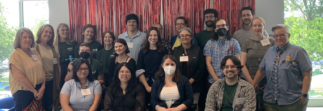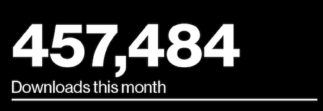Earlier this summer, the Depository Library Council (DLC) sought input on modernizing the Federal Depository Library Program (FDLP). The MIT Libraries submitted the following response, emphasizing the crucial role that equitable access to government information plays in promoting a healthy democracy and an engaged citizenship. The Libraries encouraged the DLC to engage in a robust process of engaging the public in conversations about the future of the FDLP and government information.
Dear Depository Library Council (DLC):
The MIT Libraries is pleased to respond to your request for ideas for modernizing Title 44, Chapter 19, which guides the functioning of the Federal Depository Library Program (FDLP). The MIT Libraries have a keen interest in the health of the Federal Depository Library Program, and believe its effective operation is essential to the health of our democracy.
The proliferation of digital formats has fundamentally disrupted the context in which the FDLP operates, and it is timely and appropriate that we revisit Title 44, Chapter 19. We offer here some guiding principles and suggestions to help frame this important conversation:
- A review of Title 44, Chapter 19 requires revisiting the first principles that lay the foundation for the FDLP mission: the democratizing of access to government information in order to foster transparency, accountability, and civic engagement. The review should not simply aim to modernize and make more cost-efficient the current FDLP operations; instead, we should aim to rethink the FDLP program itself in this radically altered information landscape.
- The review of FDLP should address the critical issue of capturing, preserving, and making accessible born-digital government information, a class of material for which there are insufficient laws, regulations or capacity for long-term preservation and access. The lack of capacity for responsibly addressing the born digital challenge has reached a critical state, and requires that the FDLP coordinate its efforts and strategies with cognate Federal Agencies, including the National Archives and Records Administration (NARA), the Library of Congress (LOC) as well as major professional organizations such as the American Library Association (ALA), Associate of Research Libraries (ARL), and the Society of American Archivists (SAA). Through coordinated efforts, we can bring the talents of a network of concerned stakeholders to bear on the great challenge of capturing, preserving, and stewarding born-digital Federal Government information.
- Working with experts drawn from the communities of stakeholders, including librarians and archivists, the FDLP ought to explore ways of contributing to the creation of an interoperable platform for capturing, stewarding, and disseminating government information. This interoperable platform would allow a broad network of interested stakeholders to amplify and extend the availability of government information for both scholars and citizens alike.
- The rethinking of the FDLP ought not be driven simply by a goal of cost-containment and expediency. Instead, this process should be mission and value driven. Additionally, a process that fully engages citizens in helping to express their needs with regard to timeliness and functionality of government information would be a key component of a Title 44 review. Guided and facilitated discussions with citizens who rely on government information of all kinds, commenting platforms, and open invitations to organizations with expressed interest in government openness should be extended for participation in the process. Government information is our information, and all means of engaging the public should be employed.
- Privacy is one of the guarantors of both freedom of speech and freedom of assembly, and in the digital age, this means clear and unequivocal access to government information without the possibility of monitoring or surveillance. This is perhaps one of the most important ways that depository libraries can enable the GPO to succeed in its mission to make government information freely available, by providing digital access that offers paramount protection for privacy.
- Access does not exist without preservation. Curation and preservation of government information is a complex and critically important problem, and the cultural memory of an informed citizenry depends on it. For tangible items, it is key that there are significant redundancies in place before decisions are made about the discard policies for any libraries. For digital information, there are experts available to devise plans that ensure the access of citizens and scholars to the historical record with the increased functionality possible via interoperable platforms, and who can design curatorial civic partnerships that protect the privacy of citizens who exercise their civil and civic rights to understand and respond to the actions of government. The digital preservation of government information requires the coordinated action of broad community of stakeholders, and we encourage the GPO to be proactive in reaching out to librarians, archivists, and other engaged stakeholders to address this issue.
We are delighted to offer these thoughts to help frame important conversations for modernizing Title 44, Chapter 19. We support all efforts engendered by a Title 44 review to advance the public interest by broadening the scope of the information included in the depository program and vastly enhancing both privacy of users as well as their abilities to use government information in new and important ways.
Very best,
Chris Bourg
Director, MIT Libraries


